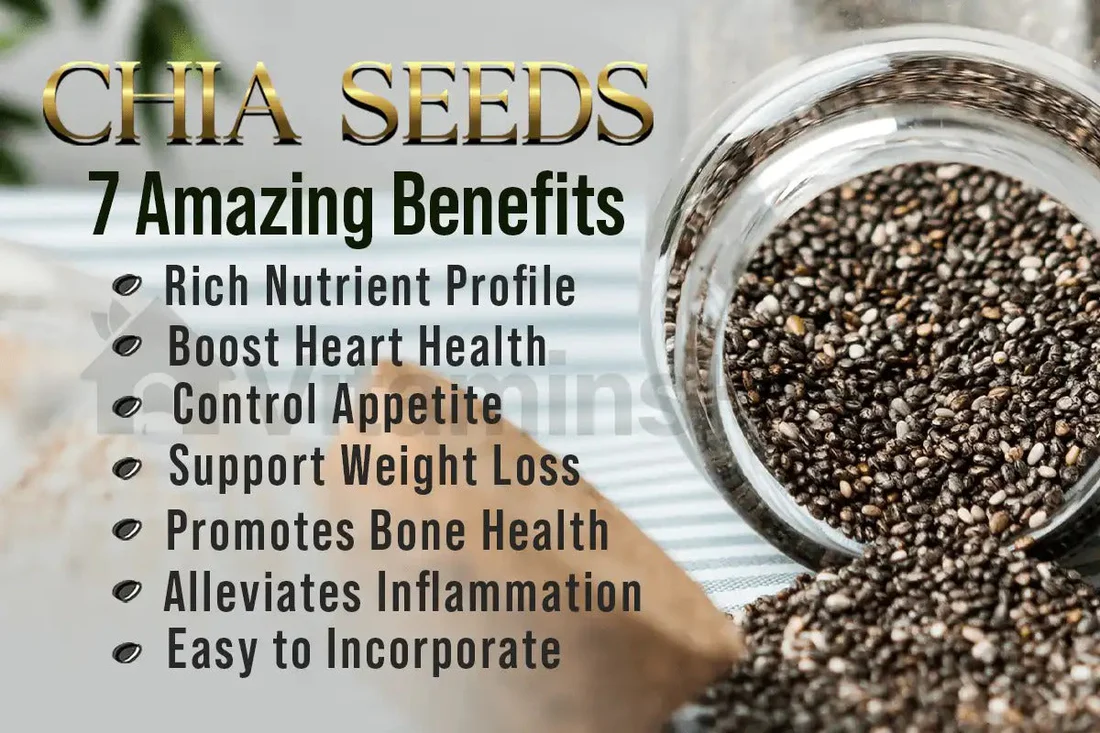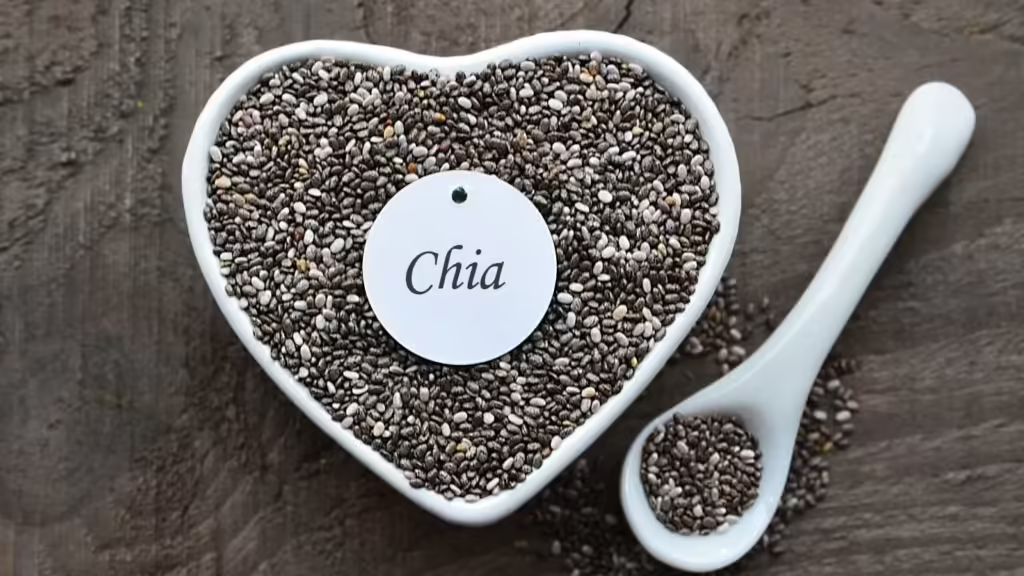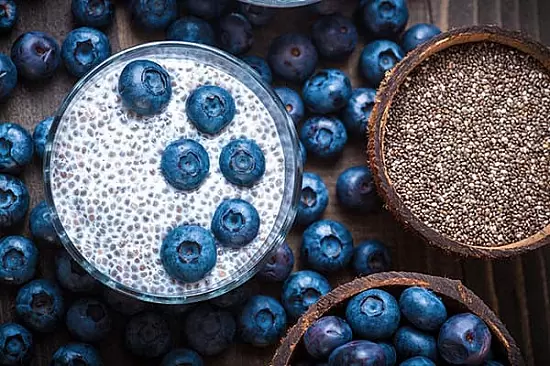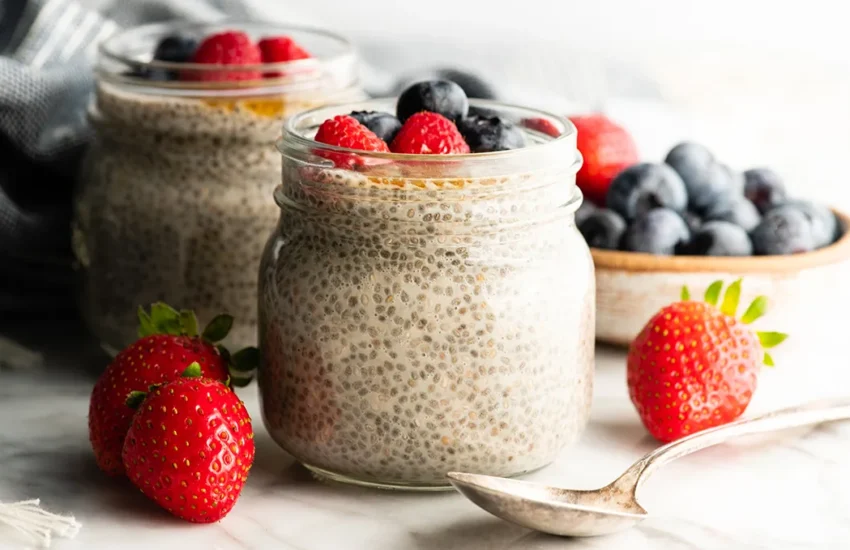Introduction
Chia seeds are small, highly nutritious seeds that are rich in antioxidants, fiber, protein, and omega-3 fatty acids. They are a fantastic complement to a balanced diet because of their outstanding nutritional profile and several health advantages. What exactly happens to your body, though, if you ingest seeds on a daily basis? What is the ideal amount to eat? Discover the answers to these and other queries, as well as the possible hazards, health advantages, and professional advice for include these wholesome seeds in your diet, by continuing to read.
Health Benefits of Chia Seeds
Improve Digestion
With just two tablespoons, this seeds provide ten grams of dietary fiber. According to studies, fiber can improve gut health, stimulate regular bowel movements, and strengthen the immune system in order to support good digestion. The fiber known as mucilage, that provides chia seeds their similar to gel texture when soaking in water, has the ability to reduce blood sugar spikes, promote satiety, and slow down digestion. According to registered nutritionist and nutrition writer Brittany Lubeck, RD, the seeds of chia are an excellent supply of fiber that is soluble, which is crucial for a healthy digestive system. Constipation may be avoided by soluble fiber, which helps give stools more volume.
Great Source of Plant Protein
The seeds of Chia are an excellent supply of plant-based protein, with nearly five grams per 2-tablespoon meal, despite their small size. They are therefore an excellent source of vegan protein. According to Lubeck, “this seeds assist vegans and vegetarians fulfill their protein needs. Wound healing, muscle health, immunity, and many other physiological processes require protein, an essential macronutrient”.

Reduce Risk of Chronic Disease
Antioxidants included in seeds of chia shield the human body from inflammation and damage from free radicals.5. Reducing oxidative stress has been linked to a decreased chance of developing chronic illnesses, such as cancer, diabetes, neurological diseases, and cardiovascular disease. Polyphenols are among the several antioxidants found in these seeds. By scavenging free radicals, these antioxidants lessen oxidative stress. According to Lubeck, eating a diet rich in antioxidants is crucial for preventing disease.
Lower Inflammation
These seeds contain omega-3 fatty acids, such as alpha-linolenic acid (ALA), which may have anti-inflammatory properties according to study. These omega-3 fatty acids have the potential to lower inflammation in the body, which has been connected to a number of chronic illnesses, including as diabetes, heart disease, and some forms of cancer.
Boost Your Heart Health
Chia seeds include omega-3 fatty acids, which can help improve heart health by lowering LDL (also known as “bad”) cholesterol levels and raising HDL (also known as “good”) cholesterol levels. Chia seeds also contain omega-3 fatty acids. Furthermore, studies have shown that chia seeds lower blood pressure, which supports a healthy heart.

Risks of Eating Chia Seeds
- The seeds of Chia are safe to eat and don’t have any negative side effects when taken in moderation.
- However, due to their high fiber content, chia seeds may induce bloating, gas, and diarrhea, among other digestive complaints.
- If you presently consume little to no fiber in your diet, it is advisable to gradually increase your consumption of high-fiber foods, such as chia seeds, and to ensure that you are getting enough water.
- Chia seeds can also be a choking hazard when they are submerged in liquids, which is particularly dangerous for those who have trouble swallowing. Learn More About Chia Seeds Risks.
- Chia seeds can be dangerous for people who have trouble swallowing because they can become stuck in the digestive tract and result in an impaction. Chia seeds increase when in contact with fluids resulting in on a sticky and thick consistency.
How to Take Chia Seeds Into Your Diet
Lubeck offers some advice on how to get the most out of these small but powerful seeds if you’re thinking about include chia seeds in your diet:
- Blend them into smoothies, oatmeal, or yogurt. Try these delectable Chia Seed Overnight Oats and a Strawberry-Peach Chia Seeds Smoothies for some inspiration
- To thicken soups, stews, and sauces, use the seeds of chia in place of eggs
- Combine the chia seeds with your preferred milk and sugar to make chia seed pudding, and then refrigerate overnight. Try this Cocoa-Chia Dessert with Raspberries; it tastes like breakfast food

- Add chia seeds to cooked products such as pancakes, pies, breads, and muffins. Savor some delectable Pancakes with Strawberries and Cream and share your opinions with us
- The seeds of Chia can be included in homemade salad dressings, dips, or jams
- It’s also important to remember that increasing your intake of fiber-rich foods, such as chia seeds, requires a lot of water for proper digestion; constipation can result from dehydration combined with a higher fiber intake


Элитные шубы из натурального меха: Превосходный выбор для стильных и успешных женщин
купить шубу https://www.shuby-premium.ru/ .